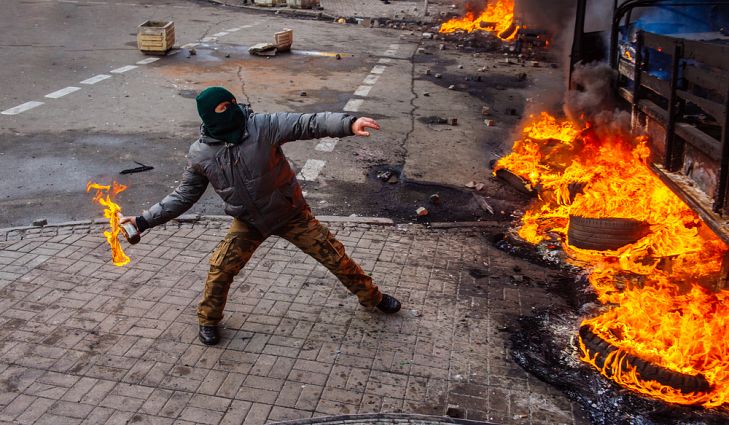
By the beginning of the Maelstrom Rising series, the global order as it has existed since shortly after the fall of the Berlin Wall and the collapse of the Warsaw Pact is disintegrating.
This is happening for reasons cultural, political, and economic. Culturally, the European Union is already fracturing as this is written. There is no “European Identity,” no matter how hard the EU Parliament has attempted to enforce it, and the influx of immigrants from the Middle East and North Africa has been a source of friction in France for decades, even before the more recent push to accept hundreds of thousands from Syria, which has resulted in an uptick of terror attacks, to include truck attacks on Christmas markets and other crowds in Germany. An increasingly large segment of the populace of Western Europe is beginning to resent the imposition of the will of the elites, most evident in the Yellow Vest protests in France, which began over gas taxes, but became much wider in scope, including over President Macron’s signing of the UN resolution declaring unfettered migration as a fundamental human right, despite the majority of Frenchmen opposing such a treaty.
The EU leaders are decrying “nationalism” as the new threat, demanding the surrender of sovereignty (in German Prime Minster Angela Merkel’s own words) being a growing demand from Brussels. But it is one increasingly opposed by Italy and the Eastern European nations. Hungary and Poland are already leading the way in enforcing their own sovereignty in the face of demands from France and Germany.
Meanwhile, faced with internal unrest, fault lines along the Alps and much of the old NATO/Warsaw Pact divide, President Macron of France has openly called for the formation of an EU Army, ostensibly to defend against Russia…and the United States. Though the question has also been raised: Will this EU Army also be used to enforce Brussels’ edicts on recalcitrant EU member nations?
Political and economic strain between German and the United States is growing, which may have something to do with the talk of needing to defend Europe against the United States. A sizeable–and vocal–chunk of the American electorate stands for individual rights that the EU has begun to slowly squeeze out of existence. And the economic desperation is growing.
Much of the recent protests have been sparked by tax hikes intended to try to bridge the gap as finances are not keeping up with social programs. And the US’ increasing trade war, closing the trade deficit of the last several decades, is not helping matters domestically.
While China was also identified as a potential adversary, as you can see from the above video, China and Germany might find themselves with a common problem. And with much of Germany’s energy dependent on Russian sources, for the EU to survive, they may need to look to other sources to fill the gap.
Finally, as matters begin to unravel, the claim keeps being repeated that it is “nationalism” that causes wars. However, the key to the future may lie in the past, except that the past has become obscured by the globalist voices calling for the elimination of nationalism and national identity in favor of an artificial “European” identity. The First World War is often pointed to as the grand example of nationalism causing mass bloodshed on a scale never before seen. But if one really peels back the history, it was not “nationalism” that caused that war. It was a wide-ranging web of entangling alliances that rendered it harder and harder for nations which had no interest in the conflict to avoid it.